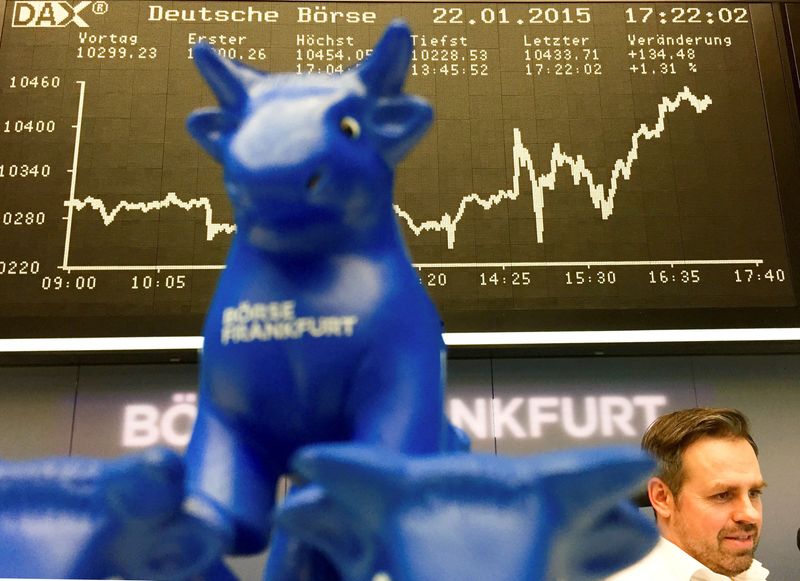US stock futures inch higher with Q3 earnings on tap
Investing.com -- With the U.S. economy taking a hit amid policy uncertainty, the U.S. exceptionalism is waning, putting European equities in the lead year-to-date, according to Barclays (LON:BARC) strategists.
“The world is at a watershed moment,” strategists led by Emmanuel Cau emphasized in a Wednesday note.
“Policy uncertainty is starting to hit US growth, and a slew of disappointing data prints is denting confidence,” they added.
The strategists believe that risks are increasingly skewed to the downside for the U.S. economy, with the “Trump put” for equities yet to come.
Still, lower interest rates, a weaker dollar, and declining oil prices could offer some relief, Barclays notes. The recent retail investment frenzy has also subsided, suggesting a period of short-term pain for potential long-term gain.
While Europe has taken the lead in year-to-date performance, strategists warn that after a significant run-up, some European market expectations may already be reflected in current prices, as valuations have normalized. Tangible policy news and earnings per share (EPS) upgrades are still some time away.
“Tariffs overhang remains, and if concerns around US growth morphs into recessionary fears, Europe decoupling may not last,” strategists noted.
Reacting to the new environment, Barclays has strategically adjusted its U.S. consumer exposure, downgrading luxury stocks to Market Weight (MW) and upgrading telecom stocks to Overweight (OW).
Yet, the bank maintains a relative tactical preference for European equities. “Hope builds up over fiscal boost and higher defence spending from a reform-oriented German coalition, and the possibility of a Ukraine ceasefire, while the ECB has more room to cut than the Fed,” strategists said.
“Potential for a reflationary policy backdrop given dual fiscal & monetary loosening under a more cohesive EU is looking more realistic by the day, and could be a game changer for the region,” they added.
Nevertheless, the uncertainty of tariffs continues to loom over the EU, with growth expected to stagnate around 0.6%. A ceasefire in Ukraine remains a possibility but has yet to be achieved.
Earnings resilience remains a supportive factor for equities, strategists continued. Fourth-quarter earnings have surpassed estimates, and EPS revisions in Europe have stabilized, partly due to a weaker euro.
While consensus estimates for EPS growth in Europe and the U.S. may be overly optimistic, Barclays believes that if global nominal GDP growth remains near trend levels, mid-single-digit EPS growth could be attainable for Europe, forecasting a 4% increase.
Stock buybacks are also expected to positively influence the broad supply-demand balance for equities and contribute to EPS growth.
In terms of valuation, European price-to-earnings (P/E) ratios have re-rated to average levels year-to-date. Further expansion of these ratios may depend on lower rates and stronger growth, which are currently speculative.
Despite this, European equities still present an attractive proposition when compared to bonds and U.S. equities, according to Barclays.
